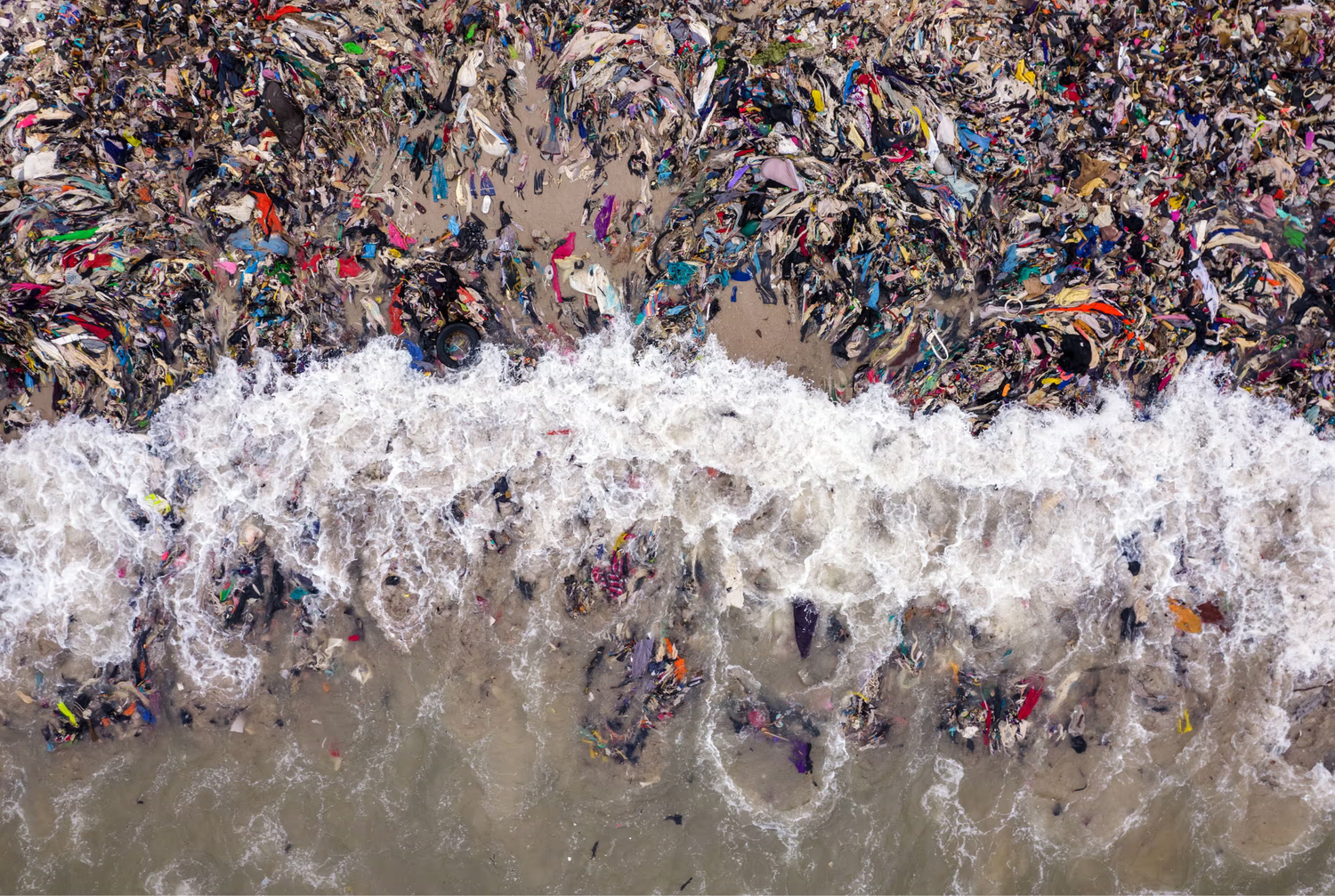We are in the midst of the symbolic week of mass consumerism: Black Friday. A period in which you can buy products of all kinds with discounts ranging from 26% to 50% on the official price. This marketing strategy has its roots in the 1920s, when the Macy's Department Store in New York came up with a brilliant idea to encourage purchases.
The phenomenon reached its peak in the 1980s, establishing itself as a national event in the United States, the day after Thanksgiving.
Today, thanks to the Internet and the e-commerce giant Amazon, Black Friday has become a global phenomenon. Companies adopt different communication strategies, but the goal remains the same: to increase revenue in a limited period of time, while trying to empty the stock of unsold goods.

Clothing is the top selling product category, fueling the phenomenon of Fast Fashion, the ultra-fast fashion that has revolutionized the way we dress in recent decades. Brands such as H&M, Zara, Shein and Benetton, already known for their affordable prices, are offering further discounts, making their products even more affordable. This boom in sales mobilizes enormous production and logistics resources: it is estimated that between 80 and 100 billion items of clothing are produced every year. Considering that the world population is approximately 8-9 billion people, the amount of clothing produced exceeds global demand ten times. This raises questions about the management of these enormous surpluses and their impact.

The logic of Fast Fashion has caused irreversible damage to the climate, society, politics and economy. This production model is based on the ability of companies to launch new products on the market very quickly, keeping them available for a few weeks. In this way, it satisfies the insatiable consumerism of our era, now out of control.
But what are the consequences of this system?
Every year, approximately 100 billion items of clothing are produced, of which 25% remain unsold. This surplus generates a huge amount of waste: it is estimated that every second a truckload of clothes is sent to landfill. The main destinations for this waste are the Atacama Desert in Chile and the outskirts of Accra in Ghana.

Two models during the Atacama Fashion Week | Photo Mauricio Nahas
In the Chilean desert, with no infrastructure for disposal or recycling, 39,000 tons of clothes are abandoned every year under the scorching sun. In Accra, on the other hand, 15 million items arrive every week, creating mountains of waste where animals graze and families live in extreme poverty. The locals call these scraps “the clothes of the dead white man,” because they consider it unthinkable to get rid of so many clothes without a drastic reason.

Men picking clothes from mountains of abandoned clothes, Accra Ghana, Source: www.Africa.it
This is just one of the ecological problems linked to Fast Fashion. The production cycle also has a devastating impact. Cotton cultivation, for example, requires large amounts of water and land, while the production of synthetic fabrics uses polluting chemicals. According to an analysis by the European Parliament, global production of textile fibers has increased from 58 million tons in 2000 to 109 million in 2022, with a forecast to grow to 145 million tons by 2030. Most of these clothes will inevitably end up in open landfills.
Added to this are the working conditions in producing countries. Adults and children work for miserable wages and without protection, often in dangerous and unhygienic environments. Many children are forced to leave school to support their families financially, compromising their future.

Faced with ever-expanding production, what solutions can we adopt?
Two Italian experts, Luisa Ciuni and Marina Spadafora, address the issue in their book “La Rivoluzione Parte Dal Tuo Armadio” (The Revolution Starts in Your Wardrobe) . The text highlights how fashion is the third most polluting sector in the world, analyzing the consequences of low cost and waste. Marina Spadafora, in an interview on “ITA Magazine”, talked about a proposed law presented to the European Parliament to force companies to make the production chain transparent through detailed labels, while at the same time raising awareness among consumers.

Coast of Jamestown in Accra, Ghana
Multinationals, however, rarely care about protecting workers, consumers or the planet. Many low-quality garments contain traces of lead, a substance toxic to the skin. It is therefore essential to change our habits: let's inform ourselves about the brands we buy from and choose consciously.
Tools like the Good On You and Renoon apps can help us. Just enter the name of the brand to get information about its environmental and social policies. Change is possible, but we have to start with our habits, or as he says Marina Spadafora, "from our closet".

www.wiji.surf
This year WIJI will not participate in Black Friday. We believe in a different way of doing and living fashion, respecting the environment and working every day towards more responsible production. Our mission is to raise awareness in the community about the importance of choosing authentic, responsible products made with care for the environment.
WIJI garments are designed to last and respect sustainability values: we use 100% organic GOTS certified cotton, recycled polyester and innovative materials such as Modal®. We produce only what is needed, avoiding waste and overproduction, to reduce the environmental impact.
We invite our entire community to experience Black Friday in a conscious way, choosing brands that respect the environment and are committed to protecting the oceans.
Change starts with each of us.













Leave a comment
This site is protected by hCaptcha and the hCaptcha Privacy Policy and Terms of Service apply.